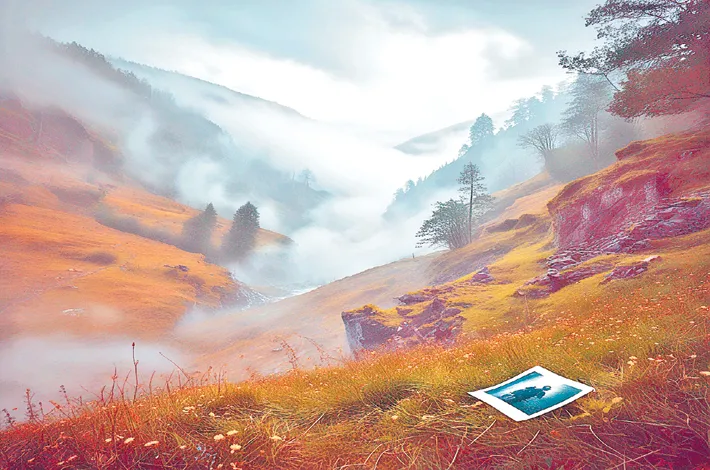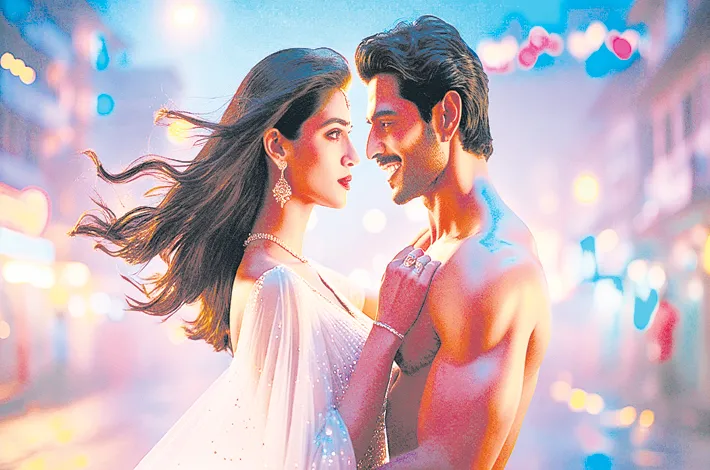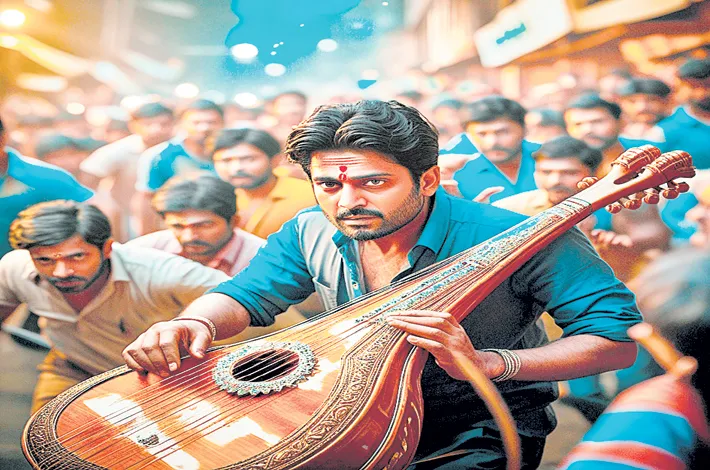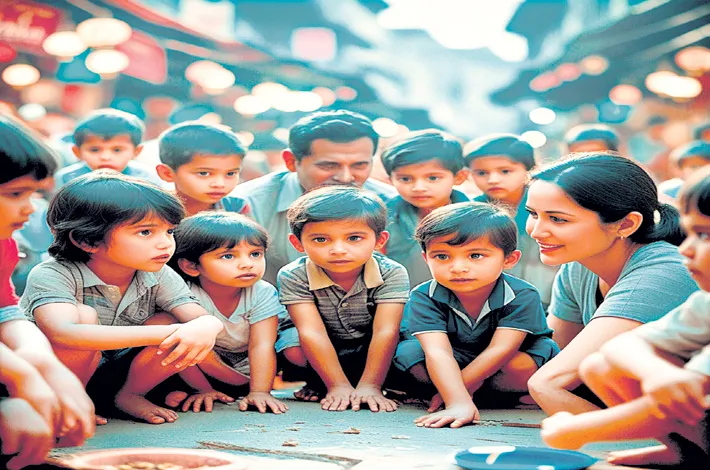The Whisper of the Valley
21-03-2025 12:00:00 AM

One night, as the moon hung low, Sanjana reached for his hand. Her fingers passed through his, a chill kissing her skin, but she didn’t pull away. “I wish you could stay,” she said, tears brimming. “I’ve never felt this… understood.”
In the shadow of the Kumaon hills, where the wind carried secrets older than the pines, lived Sanjana, a young artist with eyes like the twilight sky. She had come to the remote village of Dhanachuli to escape the chaos of Delhi, seeking solace in the silence of her ancestral haveli. The house, with its creaking wooden floors and faded frescoes, stood alone at the edge of a misty valley, whispering tales of forgotten love.
Sanjana spent her days painting the rugged cliffs and her nights listening to the wind howl through the broken shutters. The villagers warned her about the valley—about the "hawa," a restless spirit that roamed the night, seeking something lost. But Sanjana dismissed their tales as superstition, her heart too bruised from a recent betrayal to fear ghosts.
One stormy evening, as rain lashed the haveli, Sanjana found an old trunk in the attic. Inside lay a yellowed photograph of a man in a military uniform, his eyes piercing even through time. Beside it was a letter, its ink smudged but legible: "To my Roshni, I’ll return when the war ends. Wait for me in the valley. Yours, Vikram." The date was 1962, the year of the Sino-Indian War. Something about the photograph stirred her—a longing she couldn’t name.
That night, the wind grew wilder, rattling the windows like a lover demanding entry. Sanjana awoke to a shadow in her room—a man, tall and broad-shouldered, standing by the window. His uniform matched the photograph, his face etched with a quiet sorrow. She should have screamed, but her voice caught in her throat as he turned, his gaze locking with hers.
“I’m Vikram,” he said, his voice soft as the rain. “I’ve been waiting.” Sanjana blinked, certain she was dreaming. Yet, he felt real—the scent of pine and gunpowder clinging to him, the weight of his presence filling the room. “Waiting for what?” she whispered.
“For her. For Roshni. But she’s gone, isn’t she?” His eyes searched hers, as if hoping to find someone else within them.Sanjana nodded slowly. “This house belonged to my grandmother. Her name was Roshni. She… she passed years ago.”Vikram’s shoulders slumped, the air around him growing colder. “I promised I’d come back. The war took me, but my heart stayed here.”
Over the next few nights, Vikram appeared again, always at the stroke of midnight when the wind howled fiercest. Sanjana should have feared him, this ghost bound to her home, but instead, she felt drawn to him. They spoke for hours—about his dreams of a quiet life with Roshni, her love for painting, the wounds they both carried. He told her how he’d fallen in battle, how his spirit had wandered the valley, tethered by a promise unfulfilled. She shared her own story—her fiancé’s betrayal, her retreat to this lonely place.
With each meeting, Sanjana’s fear faded, replaced by a warmth she hadn’t known in years. Vikram’s presence was steady, his words tender. He’d watch her paint, marveling at how her brush captured the valley’s soul. “You see what I saw,” he’d say, a smile breaking through his melancholy. “Beauty in the wild.”
One night, as the moon hung low, Sanjana reached for his hand. Her fingers passed through his, a chill kissing her skin, but she didn’t pull away. “I wish you could stay,” she said, tears brimming. “I’ve never felt this… understood.”
Vikram’s eyes softened. “I was meant for another time, Sanjana. But you—you’ve given me peace. I feel it now, in your voice, your light.” The next day, Sanjana painted him—a portrait of Vikram against the stormy valley, his uniform sharp, his gaze alive with the love he’d carried for decades. As she finished, the wind stilled, the haveli falling into an unfamiliar quiet. That night, Vikram didn’t appear.
Panic seized her. She ran to the valley’s edge, calling his name into the mist. The air felt empty, his presence gone. Tears streamed down her face as she clutched the photograph she’d found, whispering, “Don’t leave me too.” Then, a breeze brushed her cheek, gentle and warm, unlike the wild hawa of before. In its touch, she heard him—faint, but clear: “You’ve set me free, Sanjana. Live for us both.”
Days turned to weeks, and Sanjana stayed in the haveli, painting the valley with a new fervor. The villagers noticed the change—the wind no longer wailed, the air no longer heavy with unrest. They called it a miracle, but Sanjana knew the truth. Vikram had found his peace, and in his fleeting love, she’d found hers.
Years later, when Sanjana’s paintings hung in galleries across India, one piece stood out: a soldier and a woman, their hands almost touching, framed by a valley alive with wind and light. She titled it "The Whisper of the Valley," a testament to a love that transcended time, born of a ghost’s promise and an artist’s heart.








